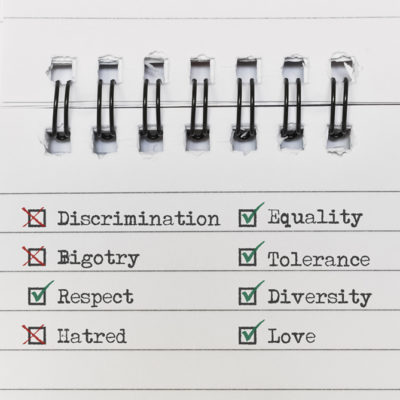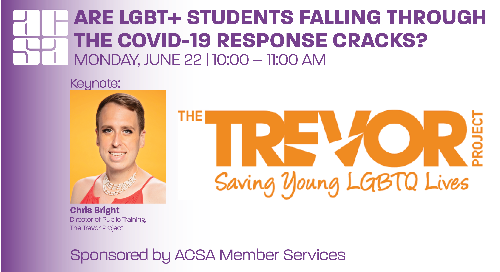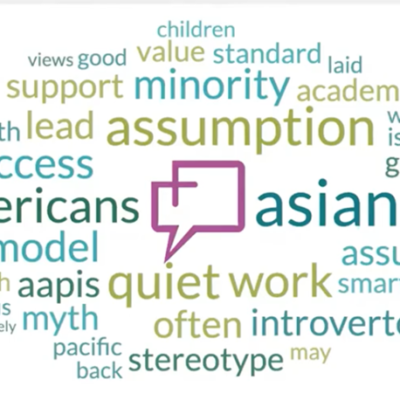Confessions of a recovering imposter syndrome leader in education
By Tanya De La Cruz
You’ve gotten the promotions. You’ve won the awards. You are leading initiatives to make change. So why do you feel like all you have accomplished is because you got lucky?
Up until about a year ago, I didn’t know this feeling had a name. I didn’t know other women had felt the same sense of fraud or unsuitability that I masked so others wouldn’t discover what I was thinking. After all, years of pushing this self-doubt down, and showing up better, brighter, and more prepared had worked for me. But at what cost?
Turns out, 75 percent of women in leadership positions have experienced this feeling of inadequacy called imposter syndrome (Kathy Caprino, 2020). That nagging feeling that you don’t deserve your achievements, or that you’re a fraud still surfaces despite having the education, certifications, training and experience. While studies show that in fields such as education, women are more likely to describe feeling like frauds relative to their male counterparts, the way it manifests really struck a nerve.
Imposter syndrome reveals itself differently for men versus women. Men tend to underperform when experiencing this feeling of self-doubt by steering clear of professional expectations, challenging goals or receiving any type of feedback (Luciana Paulise, 2023). As societal expectations of women continue to shift and women are more equally represented at the table where decisions are made, it didn’t surprise me to learn that women who face imposter syndrome will instead challenge themselves more to prove their worth, but at the cost of consistently adding on stress and anxiety brick after brick, even when performing as expected or exceeding expectations.
Especially in the field of academics and education, early research acknowledges that girls as young as 6 years old have internalized stereotypes associating brilliance with males more so than females (Amy Ciceu, 2021). So when leaders in education praise visions of exceptional strategies and forward-thinking leadership, these messages interact in the back of our minds with decades of internalized stereotypes, slowly producing these all too familiar imposter feelings.
As a result, we take on the extra projects. We lead the new initiatives. We continue to say “yes” to show we deserve to be at the table. And as a recovering imposter syndrome leader in education, a woman of color, and a genuine champion of students, I did all this and more. My projects continued to grow, and along with it, so did the anxiety, the stress, and, inevitably, the burnout. And still I continued. After all, we cannot show that we can’t handle it all. I’m fine. Everything is fine.
Well, I have a secret for you. Our value is not on the number of projects we can balance at once or securing our spot as the last one to leave the office for the day. You, my friend, are a visionary who contributes value and adds benefit to your role. Through rinse and repeat steps, there are methods to shatter this imposter syndrome, lift the weight it has created, and unhinge your potential. After all, we are role models and our students, our colleagues and our families are looking at us for guidance.
Let’s show them we can do this together:
Recognize your feelings: Whether it’s negative self-talk or generalizing your feelings of doubt, it’s important to acknowledge your emotions and understand that we are often our own worst critic. Are you being unnecessarily tough on yourself? What was it about a situation that caused such a negative outlook from you? Take emotions out of your scenario and check the facts of the situation.
Acknowledge that perfect doesn’t exist: In trying to prove myself, I would often hyper focus on ensuring that my projects, programs and meetings were organized and executed to perfection; however, if a hiccup occurred, I would quickly find myself down a road of self-doubt. Looking back at my negative self-talk, how can one mix-up cause me to feel like I’m not being a good leader? It’s important to understand that we all make mistakes. We are all human. Any failure is a learning opportunity and does not define us or our worth. Perfection doesn’t exist, so we need to proactively expect mistakes or roadblocks, learn from them, and move on.
Keep a record of your accomplishments: This may be one of the hardest tasks, but in my opinion, the most important. After all, how often do we take the time to recognize and reflect on our work? I never made time for this in the past, but I absolutely do now. What have you accomplished that you’re proud of, including your milestones outside of your professional life? Make a space in your notebook, create a Google Keep, or maybe start a wall of Post-It notes to write down at least one little win each day. This can be anything from successfully speaking up during a leadership meeting, leading a professional development or board presentation, or showing up for a friend during a tough time. If you’re ever having a tough day, you can refer back to these achievements to remind yourself that you are someone who overcomes challenges, you are someone who deserves all you have accomplished, and you have worked hard to get where you are in your career.
Create a support system through mentors or colleagues: Studies show that a community that collaborates can cultivate confidence and comradery in individuals, and among colleagues and departments. (Amy Ciceu, 2021) Having a support system to help us through the tough moments is incredibly important. These support systems are not always naturally created for us, sometimes we need to build them ourselves.
One of the biggest support systems I have leaned in toward over the years are job-alike organizations. We are so fortunate to have these in the field of education. New superintendent support groups, county-wide human resource manager meetings, administrative assistant Listservs — these are just a few of the incredible opportunities to form a support system and connect with colleagues who understand your work, who can offer advice, and who can provide much-needed networking opportunities so you have that phone-a-friend lifeline when you need it.
Being a public information and engagement officer, I have found incredible support and mentorship opportunities through the California School Public Relations Association (CalSPRA), our local county office of education, and ACSA regional professional development events and regional meet-ups. Meeting colleagues who understand education, experience the challenges of schools in a post-pandemic world, and engage with others who have been where you are is irreplaceable. I want to stress this one again — I know it’s easier to not attend a job-alike event because you feel like you’re drowning in work. This is exactly the reason you should go. Meet your counterpart in another school district, create that network of support so you don’t have to recreate the wheel, and be proactive in adding to your system of support.
Correcting this imposter syndrome that’s been weighing you down takes work, but you’ll be so surprised at how lighter you will feel as you begin to chip away to find your authentic self. Your professional and personal priorities will begin to create your sense of belonging and slowly diminish this fraudulent feeling that eats at you. And the next time you share that you’re fine, everything is fine — it actually will be.
References
Forbes Magazine, Kathy Caprino, 10/22/2020, “Imposter Syndrome Prevalence in Professional Women and How to Overcome It”
The Daily Princetonian, “New Research finds women in academic fields that value ‘brilliance’ more likely to experience imposter syndrome”, Amy Ciceu, 2021
Forbes Magazine, Luciana Paulise, 03/08/2023, “Imposter Syndrome Prevalence in Professional Women and How to Overcome It, “75% Of Women Executives Experience Imposter Syndrome In The Workplace”









Leave a Comment